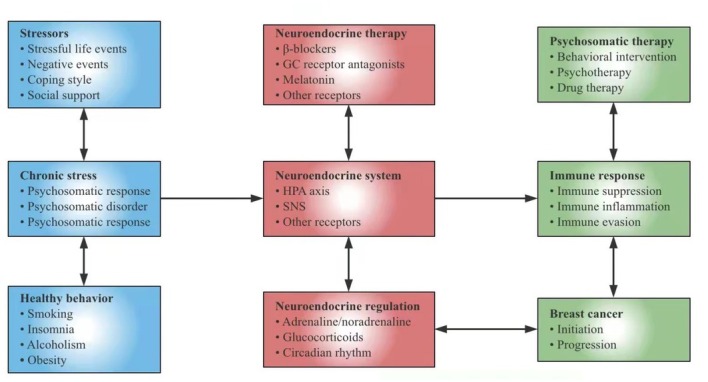Figure 1.

Chronic stress affects the pathogenesis of breast cancer through neuroendocrine pathways. In this model, psychosocial factors and healthy behavior regulate adrenaline, noradrenocortin, and glucocorticoid through the neuroendocrine system. Stress-responsive neuroendocrine mediators can also affect the immune system and control cell proliferation, invasion, angiogenesis, metastasis, and immune escape. In addition to explaining the biological behavioral risk factors of breast cancer, the model also proposes new targets for behavioral intervention, psychological intervention, and drug therapy. HPA: hypothalamic-pituitary-adrenaline; SNS: sympathetic nervous system; GC: glucocorticoid.
